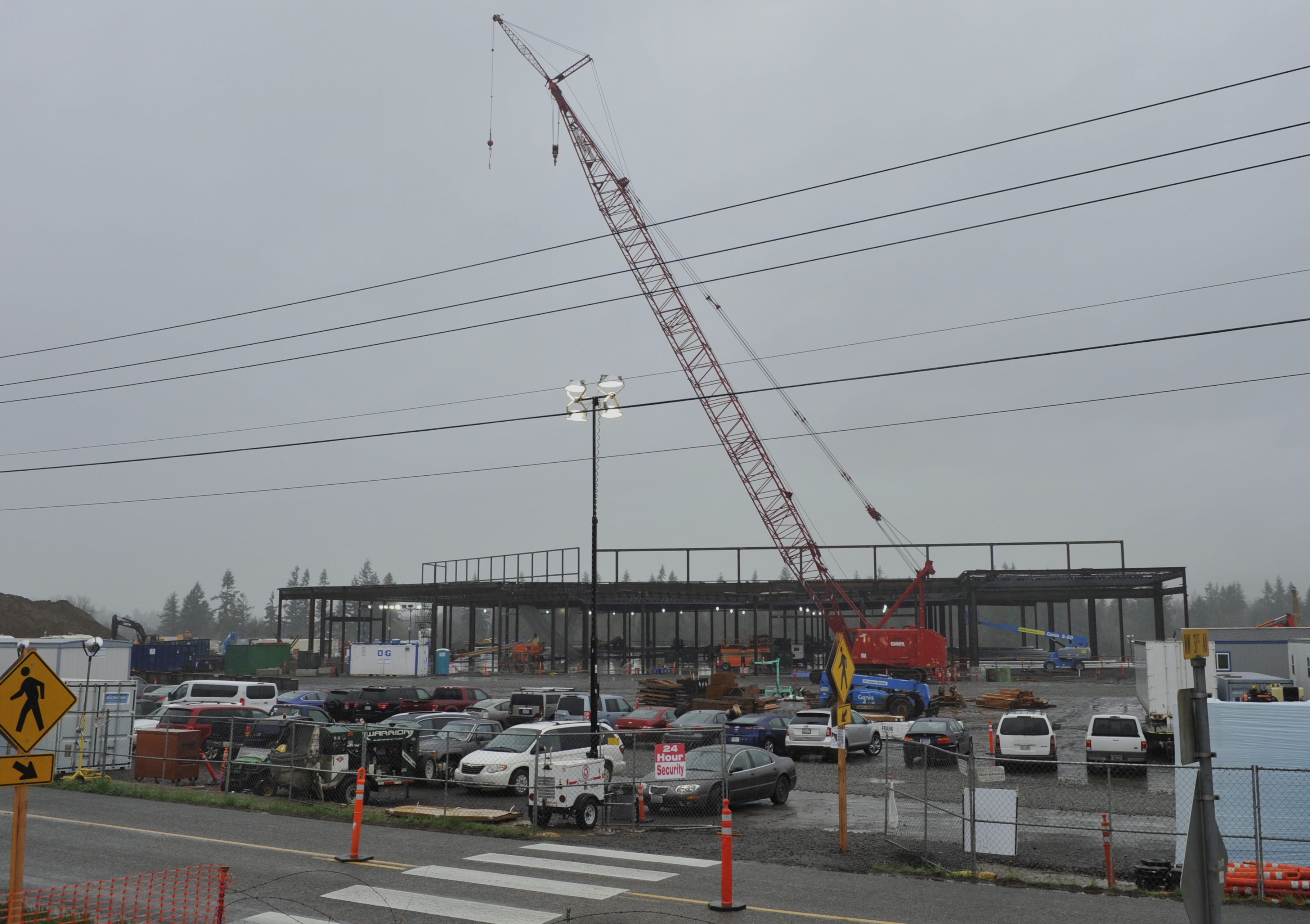In its latest clash with the Cowlitz Indian Tribe, Clark County ordered the tribe on Friday to cease all activities related to the wastewater disposal system planned for its $510 million casino resort project under construction outside of La Center.
But tribe Chairman Bill Iyall said Monday the county doesn’t have jurisdiction over the Cowlitz Reservation’s proposed wastewater injection wells, which fall under the federal Environmental Protection Agency’s purview, he said.
“What they’re trying to do is say the tribe must get a permit from the county, and there couldn’t be anything further from the truth,” Iyall said. “There is no county ordinance that applies to this. … They cannot issue permits on the reservation.”
Accompanying the “stop work” order was a letter signed by County Council Chair Marc Boldt demanding the Cowlitz Tribe honor its own tribal ordinance called “Environment, Public Health and Safety Protections for the Construction and Operation of the Cowlitz Indian Tribe Gaming Facility.”
The ordinance was adopted by the tribal government in 2007 after a judge struck down a 2004 memorandum of understanding between the tribe and Clark County. It says the tribe must comply with county development codes. It also says the tribe won’t allow public use of the proposed casino until the sewer service is fully compliant with state and federal standards.
The ordinance includes a limited waiver of sovereign immunity that would allow the county to sue if the tribe failed to comply with its provisions, which cover issues such as law enforcement, public health, fire protection, traffic and transportation, sewer and water and payments in lieu of property taxes.
The tribe called its ordinance “irrevocable,” pointing out that it was approved by the National Indian Gaming Commission. However, at the time it was adopted, county officials were skeptical that the tribe couldn’t simply change its mind and repeal the ordinance.
Now, the county alleges that building the proposed injection well system, which would pump up to 400,000 gallons a day of wastewater treated to drinking water standards deep underground, would trigger county and state regulations that the tribe would need to follow under its ordinance. One such regulation would involve getting a Critical Aquifer Recharge Areas permit from Clark County.
The injection wells are controversial because the Troutdale Aquifer System, which supplies 99 percent of Clark County’s drinking water, lies roughly 120 to 220 feet below the injection site. The tribe, however, has promised to ensure the discharged water meets or exceeds all local, state and federal standards as required by the Safe Drinking Water Act.
The tribe would prefer to hook up the casino to the city of La Center’s sewer system, but so far, the courts have prohibited it from doing so because the Cowlitz Reservation lies just outside the city’s urban growth boundary. If that boundary changes, the infrastructure will be in place: Last week, the tribe agreed to pay for a $3 million sewer line running from the city to the east side of Interstate 5’s Exit 16 interchange. The line will serve commercial development that’s expected to arise near the casino, which is under construction on the west side of I-5.
Sovereign nation
Monday, Boldt agreed that the letter and stop work order are unlikely to have any binding effects because the tribe is a sovereign nation. He said the goal is to “put some teeth” into the tribal ordinance and force the tribe to discuss its plans with the county.
“We’ve been asking questions and really haven’t had any good communication with them,” Boldt said. “We can’t get anything out of them. It could be a little drastic but I think it’s going to get us what we want.”
“What we’re looking for is just some good standards of water quality going into the aquifer,” he continued.
The county’s chief civil attorney, Chris Horne, was unavailable to comment Monday.
The county is misinformed about the process, said Iyall, who is meeting with county officials this week.
“I think the bottom line is they need to stop opposing the tribe every chance they get,” he said. “It is dumbfounding to see this continuous effort by the cardrooms come between a positive relationship between the tribe and the county. … I think the county has a role — but it’s as a partner, not as an opponent.”
The federal government officially recognized the Cowlitz Indian Tribe in 2000. In 2010, the Bureau of Indian Affairs approved an application to take 152 acres of land into trust for a Cowlitz reservation.
That prompted several groups that don’t want a casino built to question the Cowlitz peoples’ ties to the area, and ultimately sue. The plaintiffs in the case include the city of Vancouver, Clark County, the Confederated Tribes of the Grand Ronde, Citizens Against Reservation Shopping — a group that includes Columbian Publisher Scott Campbell — and the owners and operators of La Center’s cardrooms.
The group is appealing District Court Judge Barbara J. Rothstein’s decision in December 2014 to dismiss the lawsuit. Oral arguments in the case will be heard March 18 in Washington, D.C. and a decision is expected later this year.
The tribe’s reservation was established in March 2015.





